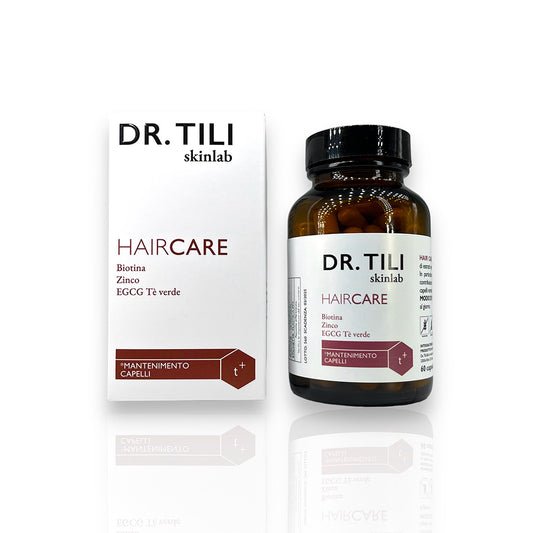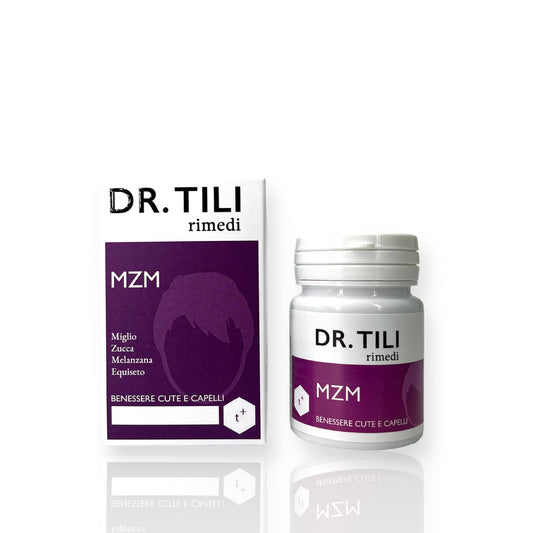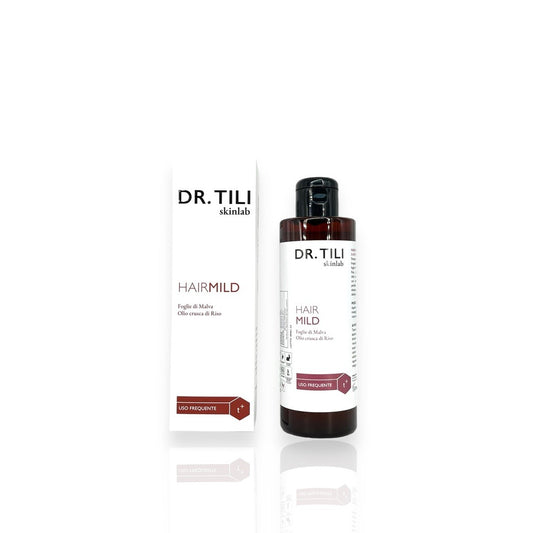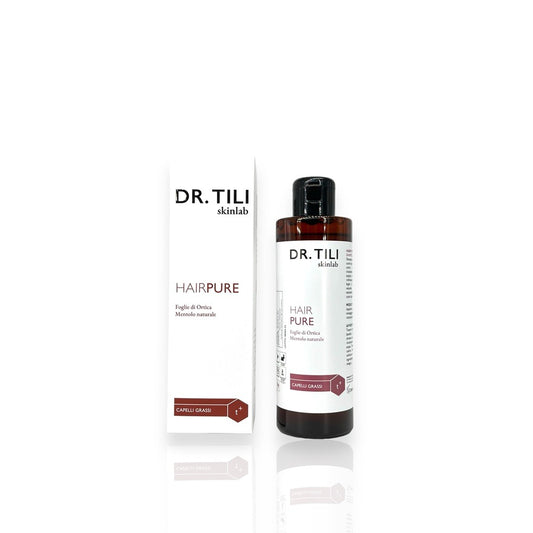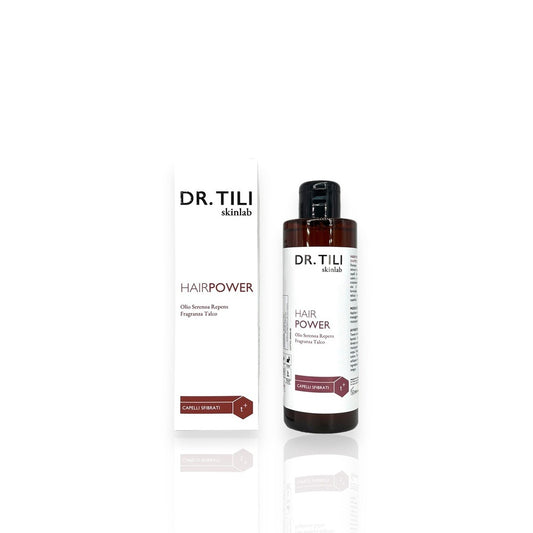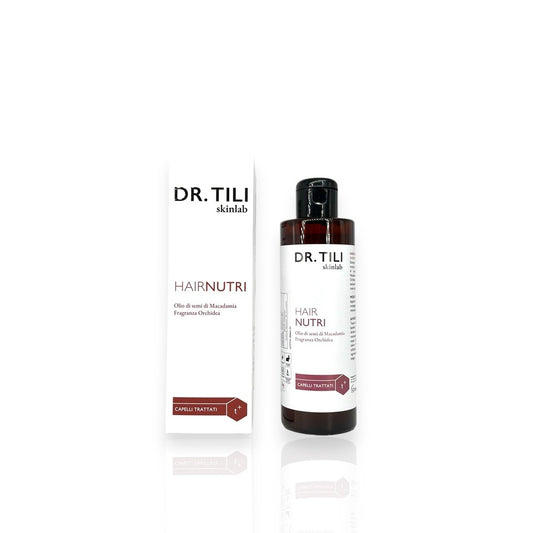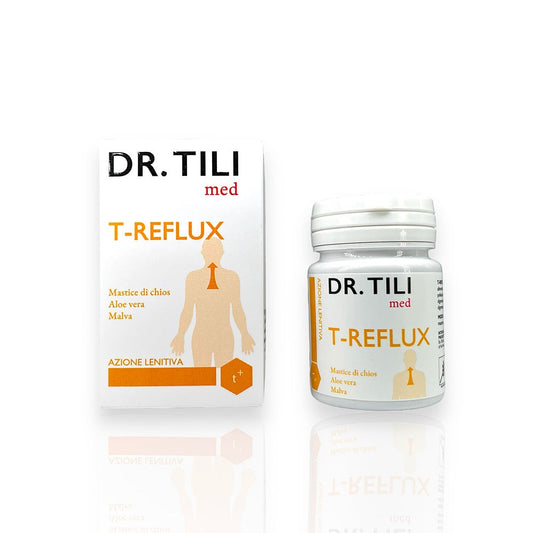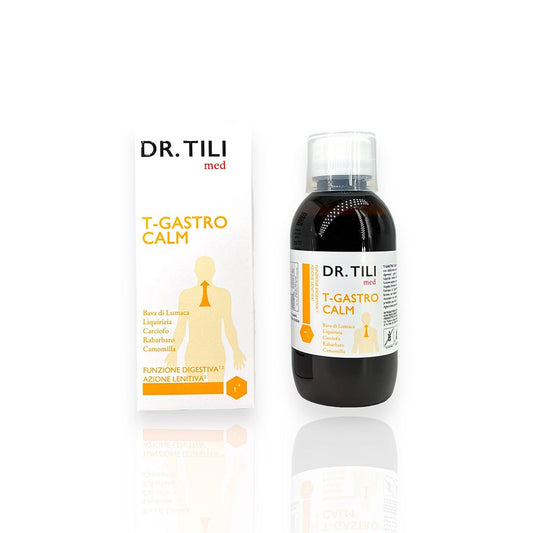DOMPE' FARMACEUTICI SpA
Levotuss Syrup 30 mg/5 ml Levodropropizina 200 ml
Levotuss Syrup 30 mg/5 ml Levodropropizina 200 ml
Ricevi 12 punti per l'acquisto di questo articolo - NON USARE sconti di associazioni o partner commerciali o i Punti così ottenuti verranno sottrattiUnisciti a noi per ricevere

Pickup available at Farmacia Tili
Usually ready in 24 hours
PRODUCT NET WEIGHT
PRODUCT NET WEIGHT
200ml
EAN
EAN
026752016
MINSAN
MINSAN
026752016
Levotuss Syrup is a non-prescription cough sedative . Levotuss Syrup is indicated for the symptomatic treatment of cough . The causes of cough are many, the most common are environmental factors, irritants, infections, colds and inflammation of the respiratory tract. Levotuss Syrup provides rapid relief with its sedative action against cough symptoms.
ACTIVE INGREDIENTS
Active ingredients contained in Levotuss Syrup 30 mg/5 ml Levodropropizine 200 ml - What is the active ingredient of Levotuss Syrup 30 mg/5 ml Levodropropizine 200 ml?
100 ml of solution contain; active ingredient: levodropropizine 600 mg. Excipients with known effect: sucrose, propylene glycol, methyl parahydroxybenzoate, propyl parahydroxybenzoate, sodium. For the full list of excipients, see section 6.1.
EXCIPIENTS
Composition of Levotuss Syrup 30 mg/5 ml Levodropropizine 200 ml - What does Levotuss Syrup 30 mg/5 ml Levodropropizine 200 ml contain?
Sucrose, methyl parahydroxybenzoate, propyl parahydroxybenzoate, citric acid monohydrate, sodium hydroxide, cherry flavouring (containing propylene glycol), purified water.
DIRECTIONS
Therapeutic indications Levotuss Syrup 30 mg/5 ml Levodropropizine 200 ml - Why is Levotuss Syrup 30 mg/5 ml Levodropropizine 200 ml used? What is it used for?
Symptomatic therapy of cough.
CONTRAINDICATIONS SIDE EFFECTS
Contraindications Levotuss Syrup 30 mg/5 ml Levodropropizine 200 ml - When should Levotuss Syrup 30 mg/5 ml Levodropropizine 200 ml not be used?
Hypersensitivity to the active substance or to any of the excipients listed in section 6.1. Administration of the drug should be avoided in patients with bronchorrhea and reduced mucociliary function (Kartagener's syndrome, ciliary dyskinesia). Pregnancy and breastfeeding (see 4.6); do not administer to children under 2 years of age.
DOSAGE
Quantity and method of taking Levotuss Syrup 30 mg/5 ml Levodropropizine 200 ml - How to take Levotuss Syrup 30 mg/5 ml Levodropropizine 200 ml?
Dosage. Adults: 10 ml of syrup up to 3 times a day at intervals of at least 6 hours. Children: 10-20 kg 3 ml 3 times a day; 20-30 kg 5 ml 3 times a day. Treatment should be continued until the cough disappears. However, if after 2 weeks of therapy the cough is still present, it is advisable to stop treatment and seek medical advice. In fact, cough is a symptom and the causal pathology should be investigated and treated. Paediatric population: do not administer to children under 2 years of age (see section 4.3). Method of administration: the package includes a measuring cup with markings corresponding to 3, 5 and 10 ml. To open the package, press the cap firmly and simultaneously turn anticlockwise.
CONSERVATION
Storage Levotuss Syrup 30 mg/5 ml Levodropropizine 200 ml - How is Levotuss Syrup 30 mg/5 ml Levodropropizine 200 ml stored?
This medicinal product does not require any special storage conditions.
WARNINGS
Warnings Levotuss Syrup 30 mg/5 ml Levodropropizine 200 ml - About Levotuss Syrup 30 mg/5 ml Levodropropizine 200 ml it is important to know that:
The observation that the pharmacokinetic profiles of levodropropizine are not markedly altered in the elderly suggests that dose adjustments or modifications of the intervals between administrations may not be required in the elderly. In any case, in light of the evidence that sensitivity to various drugs is altered in the elderly, special caution should be used when levodropropizine is administered to elderly patients. Caution is advised in patients with severe renal insufficiency (creatinine clearance below 35 ml/min). Caution is also advised in case of concomitant intake of sedative drugs in particularly sensitive individuals (see 4.5). This medicinal product contains 4 g of sucrose per dose (10 ml). To be taken into consideration in patients with diabetes mellitus. Patients with rare hereditary problems of fructose intolerance, glucose-galactose malabsorption or sucrase-isomaltase insufficiency should not take this medicine. This medicinal product contains methyl parahydroxybenzoate and propyl parahydroxybenzoate which may cause allergic reactions (possibly delayed). This medicinal product contains 22.5 mg propylene glycol per dose (10 ml), equivalent to 2.25 mg/ml. This medicinal product contains less than 1 mmol sodium (23 mg) per 10 ml dose, i.e. essentially "sodium-free". This medicinal product contains 41 mg sodium per 20 ml daily dose (10 ml twice a day in the adult dosage), equivalent to 2% of the WHO recommended maximum daily intake of 2 g sodium for an adult. This medicinal product contains 62 mg sodium per maximum daily dose of 30 ml (10 ml 3 times a day in the adult dosage), equivalent to 3% of the maximum daily intake recommended by the WHO which corresponds to 2 g sodium for an adult. Antitussive drugs are symptomatic and should be used only while awaiting diagnosis of the triggering cause and/or treatment of the underlying pathology. In the absence of information on food intake or absorption of the drug, it is advisable to take the drug away from meals.
INTERACTIONS
Interactions Levotuss Syrup 30 mg/5 ml Levodropropizine 200 ml - Which medicines or foods can modify the effect of Levotuss Syrup 30 mg/5 ml Levodropropizine 200 ml?'
Animal pharmacology studies have shown that levodropropizine does not pharmacologically potentiate substances active on the central nervous system (e.g. benzodiazepines, alcohol, phenytoin, imipramine). In animals the product does not modify the activity of oral anticoagulants, such as warfarin, nor does it interfere with the hypoglycaemic action of insulin. In human pharmacology studies the association with benzodiazepines does not modify the EEG pattern. However, caution should be exercised in case of concomitant intake of sedative drugs in particularly sensitive individuals (see 4.4). Clinical studies have not shown any interaction with drugs used in the treatment of bronchopulmonary diseases such as beta 2 -agonists, methylxanthines and derivatives, corticosteroids, antibiotics, mucoregulators and antihistamines.
Levotuss Syrup is a non-prescription cough sedative . Levotuss Syrup is indicated for the symptomatic treatment of cough . The causes of cough are many, the most common are environmental factors, irritants, infections, colds and inflammation of the respiratory tract. Levotuss Syrup provides rapid relief with its sedative action against cough symptoms.
ACTIVE INGREDIENTS
Active ingredients contained in Levotuss Syrup 30 mg/5 ml Levodropropizine 200 ml - What is the active ingredient of Levotuss Syrup 30 mg/5 ml Levodropropizine 200 ml?
100 ml of solution contain; active ingredient: levodropropizine 600 mg. Excipients with known effect: sucrose, propylene glycol, methyl parahydroxybenzoate, propyl parahydroxybenzoate, sodium. For the full list of excipients, see section 6.1.
EXCIPIENTS
Composition of Levotuss Syrup 30 mg/5 ml Levodropropizine 200 ml - What does Levotuss Syrup 30 mg/5 ml Levodropropizine 200 ml contain?
Sucrose, methyl parahydroxybenzoate, propyl parahydroxybenzoate, citric acid monohydrate, sodium hydroxide, cherry flavouring (containing propylene glycol), purified water.
DIRECTIONS
Therapeutic indications Levotuss Syrup 30 mg/5 ml Levodropropizine 200 ml - Why is Levotuss Syrup 30 mg/5 ml Levodropropizine 200 ml used? What is it used for?
Symptomatic therapy of cough.
CONTRAINDICATIONS SIDE EFFECTS
Contraindications Levotuss Syrup 30 mg/5 ml Levodropropizine 200 ml - When should Levotuss Syrup 30 mg/5 ml Levodropropizine 200 ml not be used?
Hypersensitivity to the active substance or to any of the excipients listed in section 6.1. Administration of the drug should be avoided in patients with bronchorrhea and reduced mucociliary function (Kartagener's syndrome, ciliary dyskinesia). Pregnancy and breastfeeding (see 4.6); do not administer to children under 2 years of age.
DOSAGE
Quantity and method of taking Levotuss Syrup 30 mg/5 ml Levodropropizine 200 ml - How to take Levotuss Syrup 30 mg/5 ml Levodropropizine 200 ml?
Dosage. Adults: 10 ml of syrup up to 3 times a day at intervals of at least 6 hours. Children: 10-20 kg 3 ml 3 times a day; 20-30 kg 5 ml 3 times a day. Treatment should be continued until the cough disappears. However, if after 2 weeks of therapy the cough is still present, it is advisable to stop treatment and seek medical advice. In fact, cough is a symptom and the causal pathology should be investigated and treated. Paediatric population: do not administer to children under 2 years of age (see section 4.3). Method of administration: the package includes a measuring cup with markings corresponding to 3, 5 and 10 ml. To open the package, press the cap firmly and simultaneously turn anticlockwise.
CONSERVATION
Storage Levotuss Syrup 30 mg/5 ml Levodropropizine 200 ml - How is Levotuss Syrup 30 mg/5 ml Levodropropizine 200 ml stored?
This medicinal product does not require any special storage conditions.
WARNINGS
Warnings Levotuss Syrup 30 mg/5 ml Levodropropizine 200 ml - About Levotuss Syrup 30 mg/5 ml Levodropropizine 200 ml it is important to know that:
The observation that the pharmacokinetic profiles of levodropropizine are not markedly altered in the elderly suggests that dose adjustments or modifications of the intervals between administrations may not be required in the elderly. In any case, in light of the evidence that sensitivity to various drugs is altered in the elderly, special caution should be used when levodropropizine is administered to elderly patients. Caution is advised in patients with severe renal insufficiency (creatinine clearance below 35 ml/min). Caution is also advised in case of concomitant intake of sedative drugs in particularly sensitive individuals (see 4.5). This medicinal product contains 4 g of sucrose per dose (10 ml). To be taken into consideration in patients with diabetes mellitus. Patients with rare hereditary problems of fructose intolerance, glucose-galactose malabsorption or sucrase-isomaltase insufficiency should not take this medicine. This medicinal product contains methyl parahydroxybenzoate and propyl parahydroxybenzoate which may cause allergic reactions (possibly delayed). This medicinal product contains 22.5 mg propylene glycol per dose (10 ml), equivalent to 2.25 mg/ml. This medicinal product contains less than 1 mmol sodium (23 mg) per 10 ml dose, that is to say essentially "sodium-free". This medicinal product contains 41 mg sodium per 20 ml daily dose (10 ml twice a day in the adult dosage), equivalent to 2% of the WHO recommended maximum daily intake of 2 g sodium for an adult. This medicinal product contains 62 mg sodium per maximum daily dose of 30 ml (10 ml 3 times a day in the adult dosage), equivalent to 3% of the maximum daily intake recommended by the WHO which corresponds to 2 g sodium for an adult. Antitussive drugs are symptomatic and should be used only while awaiting diagnosis of the triggering cause and/or treatment of the underlying pathology. In the absence of information on food intake or absorption of the drug, it is advisable to take the drug away from meals.
INTERACTIONS
Interactions Levotuss Syrup 30 mg/5 ml Levodropropizine 200 ml - Which medicines or foods can modify the effect of Levotuss Syrup 30 mg/5 ml Levodropropizine 200 ml?'
Animal pharmacology studies have shown that levodropropizine does not pharmacologically potentiate substances active on the central nervous system (e.g. benzodiazepines, alcohol, phenytoin, imipramine). In animals, the product does not modify the activity of oral anticoagulants, such as warfarin, nor does it interfere with the hypoglycaemic action of insulin. In human pharmacology studies, the association with benzodiazepines does not modify the EEG pattern. However, caution should be exercised in case of concomitant intake of sedative drugs in particularly sensitive individuals (see 4.4). Clinical studies have not shown any interaction with drugs used in the treatment of bronchopulmonary diseases such as beta 2 -agonists, methylxanthines and derivatives, corticosteroids, antibiotics, mucoregulators and antihistamines.
SIDE EFFECTS
Like all medicines, Levotuss Syrup 30 mg/5 ml Levodropropizine 200 ml can cause side effects - What are the side effects of Levotuss Syrup 30 mg/5 ml Levodropropizine 200 ml?
During treatment with levodropropizine, palpitations, tachycardia, nausea, vomiting, diarrhea, erythema may occur. Reactions reported as serious are urticaria and anaphylactic reaction. Most reactions that occur following the intake of levodropropizine are not serious and symptoms have resolved with the suspension of therapy and, in some cases, with specific pharmacological treatment. The adverse reactions observed (incidence unknown) are the following. Eye disorders: mydriasis, bilateral blindness. Immune system disorders: allergic and anaphylactoid reactions, eyelid edema, angioneurotic edema, urticaria. Psychiatric disorders: nervousness, drowsiness, personality change or personality disorder. Nervous system disorders: syncope, dizziness, vertigo, tremor, paraesthesia, tonic-clonic convulsions and petit mal seizures, hypoglycaemic coma. Cardiac disorders: palpitations, tachycardia, atrial bigeminy. Vascular disorders: hypotension. Respiratory, thoracic and mediastinal disorders: dyspnoea, cough, respiratory tract oedema. Gastrointestinal disorders: gastric pain, abdominal pain, nausea, vomiting, diarrhoea. Hepatobiliary disorders: cholestatic hepatitis. Skin and subcutaneous tissue disorders: urticaria, erythema, exanthema, pruritus, angioedema, skin reactions, glossitis and aphthous stomatitis, epidermolysis. Musculoskeletal and connective tissue disorders: weakness of the lower limbs. General disorders and administration site conditions: general malaise, generalised oedema, asthenia. Paediatric population: a case of drowsiness, hypotonia and vomiting has been reported in a neonate after levodropropizine intake by the nursing mother. Symptoms appeared after feeding and resolved spontaneously by suspending breastfeeding for a few feedings. Reporting of suspected adverse reactions. Reporting suspected adverse reactions that occur after authorisation of the medicinal product is important, as it allows continued monitoring of the benefit/risk balance of the medicinal product. Healthcare professionals are asked to report any suspected adverse reactions via the national reporting system at: https://www.aifa.gov.it/content/segnalazioni-reazioniavverse.
PREGNANCY AND BREASTFEEDING
If you are pregnant or breast-feeding, think you may be pregnant or are planning to have a baby, ask your doctor for advice before taking Levotuss Syrup 30 mg/5 ml Levodropropizine 200 ml
Teratogenesis, reproduction and fertility studies as well as peri- and postnatal studies have not revealed specific toxic effects. However, since in toxicological studies in animals at a dose of 24 mg/kg a slight delay in body weight gain and growth was observed and since levodropropizine is able to cross the placental barrier in rats, the use of the drug is contraindicated in women who intend to become or are already pregnant since its safety of use is not documented (see 4.3). Studies in rats indicate that the drug is found in breast milk up to 8 hours after administration. Therefore, the use of the drug during breastfeeding is contraindicated.











